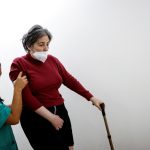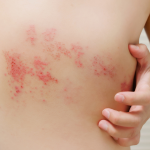What is soft tissue sarcoma?
Soft tissue sarcomas are tumours that grow in the cells in the soft tissues of the body: for example, in the muscles, fat, cartilage, nerves, tendons, lining of the joints or the blood vessels. Soft tissue sarcomas can grow almost anywhere in the body.
Sarcomas are rare, but they are one of the most common cancers in children. Experts don’t know why some children develop soft tissue sarcoma. It’s more common in children who have been exposed to radiation, who were born with certain genetic conditions, or who have HIV at the same time as the Epstein-Barr virus that causes glandular fever.
What are the types of soft tissue sarcoma?
There are about 50 types of soft tissue sarcoma, and each one is different. The most common type is called a rhabdomyosarcoma and grows in muscle cells. Rhabdomyosarcomas are more common in children under 10 years, though they can also grow in teenagers and adults.
Other types of soft tissue sarcoma include:
- liposarcoma, which grows in fat
- synovial sarcoma, which often grows near a joint, such as the elbow or knee
- leiomyosarcoma, which grows in smooth muscle
- tumours that grow in the fibrous connective tissue, such as desmoid tumours and fibrosarcomas
Often, it’s not known where the tumour first started growing.
What are the symptoms of soft tissue sarcoma?
The symptoms of soft tissue sarcoma depend on where the tumour is located. The main symptom is a painless lump or swelling under the skin. If the tumour is pressing on nerves, organs or blood vessels, there may be pain or weakness in part of the body.
Remember that a lump or swelling under the skin is usually not a soft tissue sarcoma – this cancer is very rare.
How is soft tissue sarcoma diagnosed?
There are different tests to diagnose soft tissue sarcoma. Scans are usually done first, including x-rays, CT, MRI or PET scans. Then the medical team will do a biopsy to remove a small piece of the tumour to be tested in the laboratory. This will determine whether it is a sarcoma, what sort of soft tissue sarcoma it is, and the best way to treat it.
Based on the results of these tests, the medical team will calculate the stage of the tumour – how big it is and whether it has spread. The tumour can be:
- Stage 1 – small and unlikely to spread
- Stage 2 – likely to grow and spread
- Stage 3 – has already spread to the lymph nodes, or is very likely to spread
- Stage 4 – has already spread to distant parts of the body
Identifying the stage helps doctors to work out how to treat the soft tissue sarcoma, and to estimate the outlook for the child.
How is soft tissue sarcoma treated?
If your child has soft tissue sarcoma, they will be looked after by a team of health professionals, known as a multidisciplinary team. Your child might see specialists such as paediatric oncologists (doctors who specialise in treating children’s cancer); medical oncologists (doctors who specialise in medicines to treat cancer); radiation oncologists (doctors who specialise in using radiotherapy to treat cancer); surgeons; nurses; social workers; rehabilitation therapists; psychologists; and other specialists.
The best treatment will depend on the type of tumour, where it is, how quickly it is growing, and how your child reacts to the treatment. Most children will have a combination of treatments. Options include:
- Surgery: Surgical treatment aims to remove all or part of the tumour.
- Chemotherapy: Anti-cancer medicines are used to destroy the cancer cells. Your child could have a combination of different medicines.
- Radiotherapy: High-energy x-rays are used to destroy cancer cells.
- Targeted therapy: Medicines are used that target cancer cells, with fewer side effects than chemotherapy.
- Other medicines: Some children are given hormone therapy or non-steroidal anti-inflammatory drugs (NSAIDs) to stop the tumour growing.
Some children won’t be treated at first, but they will be closely monitored and treated if any symptoms develop.



